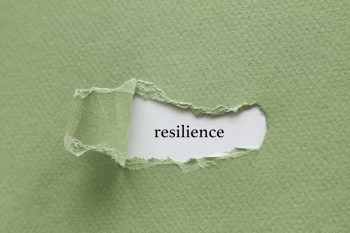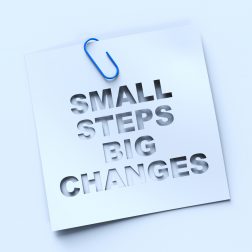 “Stop reacting to others and start responding. Reaction is automatic. Responding is consciously choosing your response.” – Marc Reklau
“Stop reacting to others and start responding. Reaction is automatic. Responding is consciously choosing your response.” – Marc Reklau
Being resilient instead of rigid is an important skill for success in life. Resiliency allows you to have the ability to adapt and overcome setbacks, while rigidity implies a refusal to budge even when it’s clear that something needs to change. But how do you measure and know what your resilience factor is?
At Windridge, we use the Winslow Assessment to help leaders measure their or their team’s behaviors, and in particular when it comes to resilience: Toughmindedness, Flexibility, and Boldness. All three of these traits are influencers in becoming more resilient, solution focused and creating the ability to bounce back after constructive criticism, setbacks or disappointments.
When coaching, I’m often asked: I scored so low on Toughmindedness (or Flexibility or Boldness). What can I do to not become discouraged and give up?
By using the following strategies consistently, you’ll be better equipped to handle the challenges life or work throws your way.
- Acknowledge Your Feelings: Resilience doesn’t mean you must suppress your emotions—it just means you can recognize and accept them without letting them control you. Take the time to reflect on how you’re feeling in any given situation, then identify how you want to react in the future. Write down your action plan and then take small steps to implement it. You’ll be amazed at how just having a plan will make a huge difference.
- Create Structure: Having clear goals and boundaries will provide focus to your day-to-day life and help you identify how you will respond before problems arise. This structure will help you stay on track with what needs to be done and prevent you from getting lost in the chaos of second-guessing or overthinking.
- Practice Self-care: Taking short breaks to do something soothing, such as reading a book or taking a walk, will help you recenter and gain perspective on stressful situations.
- Set Realistic Expectations: Don’t put undue pressure on yourself by setting unrealistic expectations. Instead, focus on setting achievable goals and celebrating the small victories along your journey.
- Reframe Your Thinking: Rather than getting caught up in unhelpful thoughts and negative self-talk, try reframing challenges as opportunities for growth and learning. A great book for helping with your thinking process is Jason Selk’s book “Relentless Solution Focus: Train Your Mind to Conquer Stress, Pressure, and Underperformance.”
- Be Open to Change: Two additional Winslow traits to consider are Flexibility (the ability to handle change) and Boldness (comfort with risk—the courage factor). Don’t be afraid to take calculated risks that put you slightly outside of your comfort zone. By doing so, you’ll become more adaptable and able to embrace change.
- Celebrate Your Successes: And most important, don’t be too hard on yourself when things don’t go according to plan. Celebrate the successes and learn from your mistakes—and don’t overthink.
By incorporating the above strategies into your personal and professional life, you’ll become more resilient and better able to handle the curveballs that life throws your way.
Remember: Resilience (toughmindedness) isn’t about suppressing your emotions; it’s about having the strength to recognize and accept them without letting them control you. Don’t be afraid to take risks, set realistic expectations, and practice self-care. With a little bit of dedication, you can become more resilient and find success in calmly and proactively facing your challenges.



